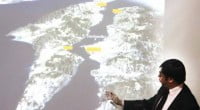Rethinking the state-people relationship [in Turkey]

Date posted: November 22, 2013
Beril Dedeoglu
We all know that Turkey has to solve a number of critical problems to become a democratic, pluralist and transparent state that is ruled by law.
We also know that these problems are the result of decades of inaction; none of them have just appeared recently. Some people may expect solutions in the short term, but they will only be disappointed. No government can deal with all of these problems in just a couple of years.
When people expect too much from their government, the head of government can start to believe that he has the personal responsibility to deal with every problem and then try to intervene in every aspect of life. This only creates a deadlock, as society and the prime minister do not always have the same expectations.
In Turkey, even nongovernmental organizations have the habit of developing their projects not according to society’s expectations, but in line with the state’s demands. Maybe that’s why politicians consider NGOs to be their political interlocutors; or worse, they consider them political opponents and they start fighting against them. Civil society suffers because of this highly politicized environment.
Turkey’s main problem is that we are discussing sensational daily developments a lot without tackling the core issues. For example, we are busy discussing prep schools, but very few people point out that this issue is only a component of a larger, more general subject: Turkey’s education system. We are talking about the Kurdish issue without sufficiently underscoring that this is in fact about Turkey’s democratization and system of local administration. We are talking about the Alevis’ problems without saying that this debate is, in fact, about secularism and the future of the Directorate of Religious Affairs. The same thing happened during the debate about the military tutelage regime. We paid too much attention to spectacular trials without asking if all the tutelage regime’s institutions, practices and mechanisms were indeed being dismantled.
It would be a good start to ask who is going to have priority in the country: Is it the people or the state? A number of public surveys are regularly conducted about the relationship between citizens and the state and in most cases, people do affirm that individuals must be placed at the system’s center.
Once you put the people at the center, rather than the state, then you have to accept that no way of life can be imposed on people. In a pluralist country where people’s diverging demands are respected, there is no place for a single kind of school, one model of local governance or higher education, or uniform working hours. In such a country, the state’s mission is limited to coordination and control; it will intervene only if necessary. Putting people at the center of our socio-political order is a tremendous transformation and it could cause some reaction; however, at the end, everyone will benefit equally from it. This change must, of course, start at the society level and mustn’t be imposed from the top; that would be a paradox.
Turkey’s problems and its need for transformation do not only concern those who live in Turkey, but many others who live in the surrounding region, too.
For example, the Kurdish issue’s evolution in Turkey will deeply affect three of our neighbors, in addition to American, Russian and European strategies for the Middle East. Everything will change according to the solution model, from the regional balance of power to the energy resources transfer projects.
No government can deal with all these problems and calculations alone. The right thing to do would be to listen to society instead of trying to change it, then to listen to Turkey’s foreign partners and of course, not to enter into conflict with those who have helped the governing team until now.
Source: Today's Zaman , November 22, 2013
Tags: Democracy | Education | Turkey |
























